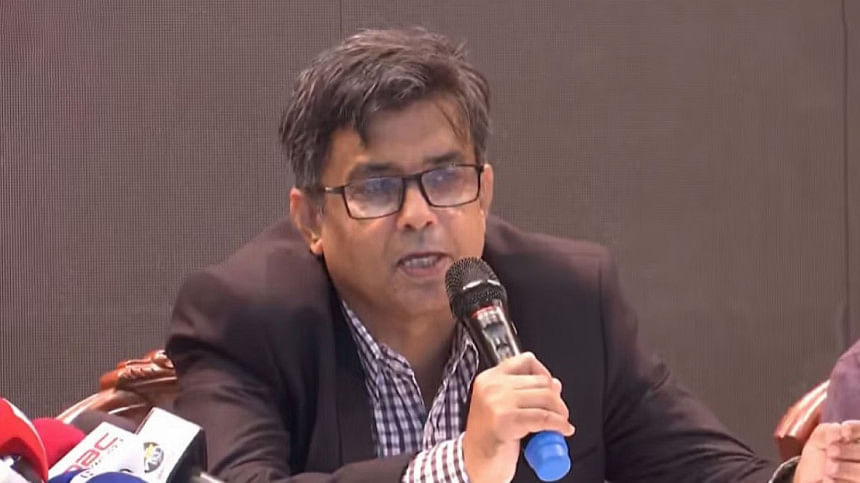UN supervision: Journalism during AL regime to be investigated

Chief Adviser's Press Secretary Shafiqul Alam yesterday said the journalism practised over the 15 years of Awami League regime will be investigated under the supervision of the United Nations (UN).
He made the remarks while speaking as the chief guest at a review event on the Media Reform Commission's report, organised by the Broadcast Journalist Center (BJC) at The Daily Star Centre in the capital.
Shafiqul stressed the need for ensuring a minimum salary of Tk 30,000 for journalists working in electronic media.
He also said that during the 15 years of AL rule, three controversial elections were held and numerous people became victims of enforced disappearances and killings.
"We are writing to the United Nations, asking for an investigation into journalism over the past 15 years. We're requesting them to send external experts to examine what kind of journalism took place during this time," he said.
Such a probe is essential to restore public trust in journalism in Bangladesh, he said.
He added that the growing "lack of public confidence" in Bangladesh's media must be addressed to strengthen democratic values.
"Journalism in Bangladesh must move forward with truth at its core," he said. "This is essential for democracy. A vibrant media is key to a vibrant democracy," said Shafiqul Alam.
He warned that if the necessary reforms are not implemented now, they may become much harder to achieve in the future.
Regarding the report of the Media Reform Commission, there is room for broader discussion.
However, he noted that in its 11 months in office, the government has already taken significant steps to promote press freedom and free speech.
The current government has aimed to create a vibrant space for press freedom, where everyone can pursue ethical journalism, he said, adding that while not all obstacles have been removed, major progress has been made.
Shafiqul described the now-defunct Digital Security Act (DSA) as a "sword of Damocles," pointing out that around 7,000 cases were filed under the law, often to silence dissent.
However, freedom of expression was not suppressed only by misusing the law, but in various other ways, he said.
He said that although mechanisms exist to address misinformation and disinformation, a culture of fear persisted during the previous government's tenure, aimed at suppressing free speech.
He stressed that the interim government welcomes constructive criticism from the media but cautioned against using media platforms for personal smear campaigns.
Chairing the event, BJC Chairman Rezwanul Haque Raza urged the government to begin implementing the Media Reform Commission's recommendations, saying this would restore journalists' confidence.
He added that financial stability is essential for journalists to work without fear or compromise.
Prof Gitiara Nasreen of Dhaka University, a commission member, said rebuilding public trust is the biggest challenge for Bangladesh's media, which must remain accountable to the people.
She said the commission's aim was to ensure journalists can work with dignity and freedom.
Shahnewaj Patwari, head of programmes at Article 19, criticised the blanket filing of cases against journalists and called for a case-by-case approach based on specific allegations.
Jamuna Television CEO Fahim Ahmed, Maasranga TV Chief News Editor Rashed Ahmed, and BBC Media Action Country Director Md Al Mamun also spoke.

 For all latest news, follow The Daily Star's Google News channel.
For all latest news, follow The Daily Star's Google News channel. 



Comments